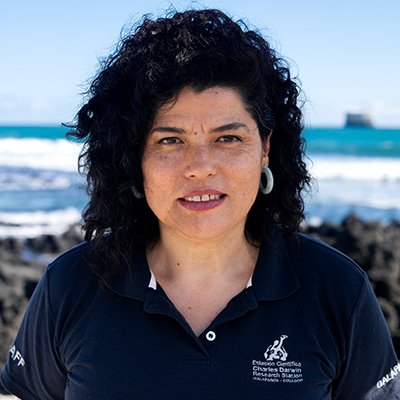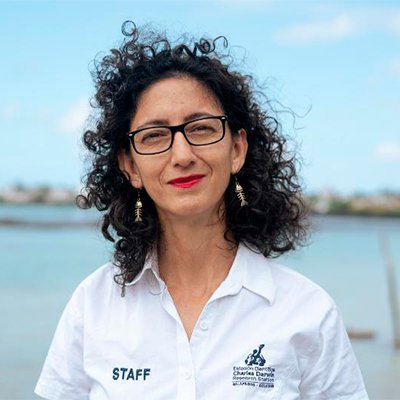While Galapagos remains one of the best-conserved destinations in the world, it is faced with numerous challenges that are derived from growth in tourism and local population. We are investigating how sustainable practices across multiple sectors such as urban planning and energy can mitigate these impacts while enhancing local community well-being through the health of the islands' socio-ecosystems.
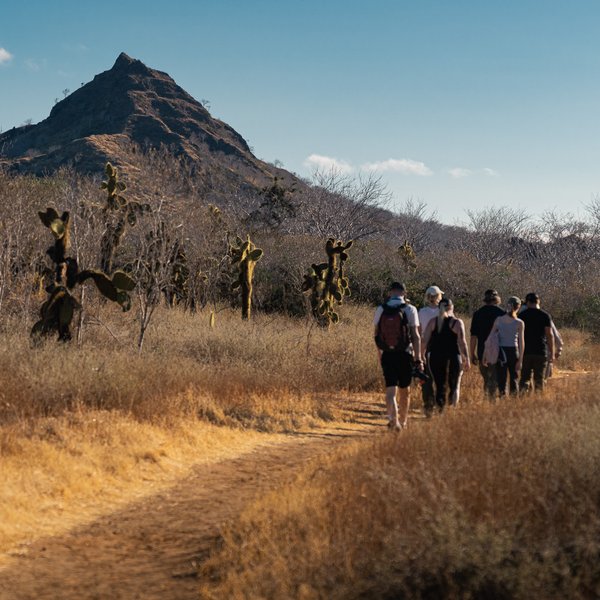
Our Team
Andrea Muñoz
Principal Investigator - Sustainability for Conservation
María José Barragán Paladines
Science Director
Collaborators
Carlos Martín-Ríos, Ecole Hôtelière Lausanne
Carter Hunt, Penn State University
Chloe King, PhD Student, University of Cambridge
Dirección Zonal Ministerio de Turismo, Galapagos
Galapagos Conservation Trust, GCT
Galápagos Hub para la Innovación, Resiliencia y Sostenibilidad
Galapagos National Park Directorate
Peter Varga, Ecole Hôtelière Lausanne
Robert Bensted-Smith, Talking Transformation
Seul Kim Lee, University of Sejong
Universidad San Francisco de Quito, USFQ
Donors
Anonymous Donor
Leading House Latin America, University of St. Gallen
The challenge
Since its designation as a UNESCO Natural World Heritage Site in 1978, the Galapagos Islands have become a vital site for studying unique natural phenomena. However, human activities have significantly reshaped the islands. With tourism increasing by 7% annually over the last decade, the archipelago has evolved into a hub of cultural, economic and ecological significance for Ecuador, at the same time escalating the demand for goods, services, and food.
In this new context, the Galapagos Islands inadvertently serve as a case study for exploring critical issues such as land use change for urbanization and agriculture, habitat degradation driven by invasive species, and unsustainable tourism trends.
The COVID-19 pandemic further underscored these challenges by exposing the islands' heavy reliance on tourism, revealing the complexity of its impacts on nature during the near-total pause in travel. As such, an integrated transdisciplinary research approach is crucial to address these threats and opportunities to secure a sustainable future for the islands.
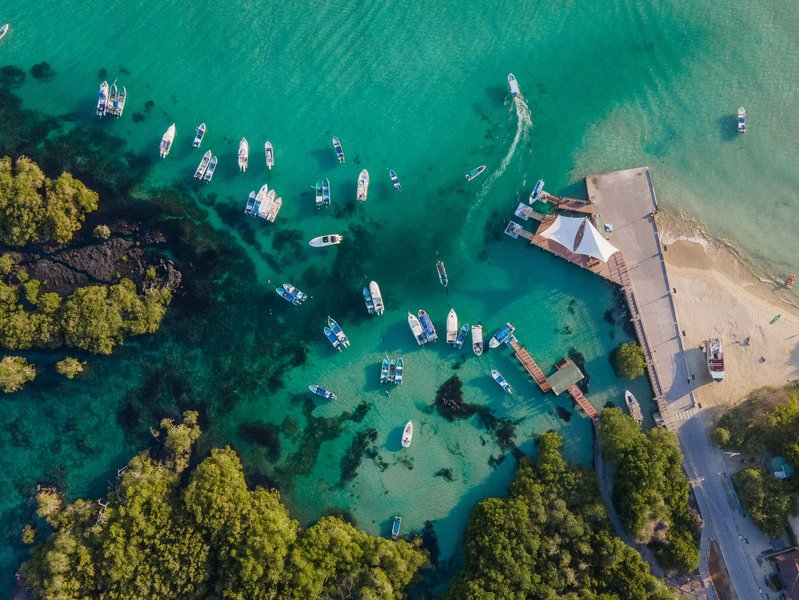
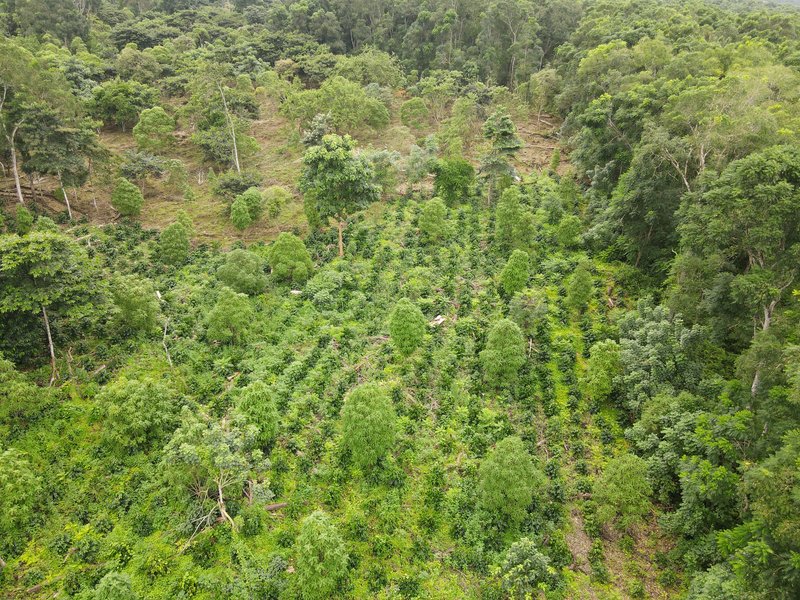
What We Do
We work with multiple stakeholder groups in Galapagos to develop a comprehensive understanding of the island's social and ecological system dynamics, with a particular interest in two areas of research:
The Galapagos Islands, one of the world's earliest ecotourism destinations, have seen a dramatic rise in visitors since the 1960s, surpassing 320,000 in 2023. With a view to foster more sustainable tourism on the islands, our work consists of:
Exploring tourism trends: We explore tourism dynamics both before and after COVID-19.
Ecological and Social Carrying Capacity studies: We develop research initiatives related to the ecological and social tourism carrying capacity in Santa Cruz Island, the most populated island in the archipelago.
Impact research: We conduct social science research to understand the consequences of different development scenarios on the islands, aiding in effective policy-making.
Policy Development and Public Engagement: As part of the Galapagos Policy Advisory Group (GAP), we work with an alliance of organizations and experts to develop new alternatives and sustainability strategies for the Galapagos Islands, as well as facilitate public policy discussions.
Agriculture in Galapagos is largely for local consumption, including by the tourism industry, with some products, such as coffee exported as a premium product. These agricultural crops are essential for promoting environmental and socio-economic benefits for the local communities that depend on them. Our work in this line of research focuses on the highlands of Santa Cruz Island, one of the most degraded ecosystems of the archipelago.
Participatory Agroforestry Development: We co-create initiatives with the local community that integrate local Galapagos-branded coffee production, with a view to both enhance production while also helping to restore and maintain biodiversity in the area. As part of this process, we look at the restoration of endemic species in the highlands of Santa Cruz to support shade-grown coffee, increase biodiversity, and improve ecosystem health.
Socio-Economic Integration and Strategic Planning: We incorporate human dimensions such as the role of women and community involvement to design strategies that address agricultural challenges and future prospects, balancing conservation with development.
Program Objectives
The Sustainability for Conservation Program investigates the complex relationship between the practices of different economic activities (tourism, agriculture), with the well-being of human and natural systems. Our goal is to generate knowledge that provides evidence-based conservation strategies while promoting the long-term well-being of Galapagos communities and ecosystems. Specifically, we seek to:
- Develop participatory indicators to evaluate how sustainable different sectors are in Galapagos.
- Assess community perceptions of the value of ecosystem services in protected areas, including the tourism, urban development, and agriculture sectors.
- Establish a clear framework to analyze how different local stakeholders contribute to the local economy, with a focus on making sustainable and informed choices.
- Collaborate with key stakeholders through participatory dialogues to shape a research agenda focused on the sustainability of the Galapagos Islands.
Why It Matters
Galapagos is a unique and fragile ecosystem that is home to a vast array of endemic species. While tourism and agriculture are vital parts of the local economy and support a multitude of conservation initiatives, they can also have negative impacts on the environment if managed unsustainably.
In recent years, there has been a surge in the number of invasive species which is closely linked to the increasing of number of tourists, the growing resident population, and the imported cargo necessary to sustain these. This has raised concerns about the impact of tourism on the islands' delicate ecosystems, and the long-term sustainability of a tourism-dependent economy within the islands.
Sustainable activities represent a way to manage the economic activities so that they minimize negative impacts on the environment while benefiting local communities. Researching and promoting these activities are about discovering the appropriate balance between economic development and environmental protection.
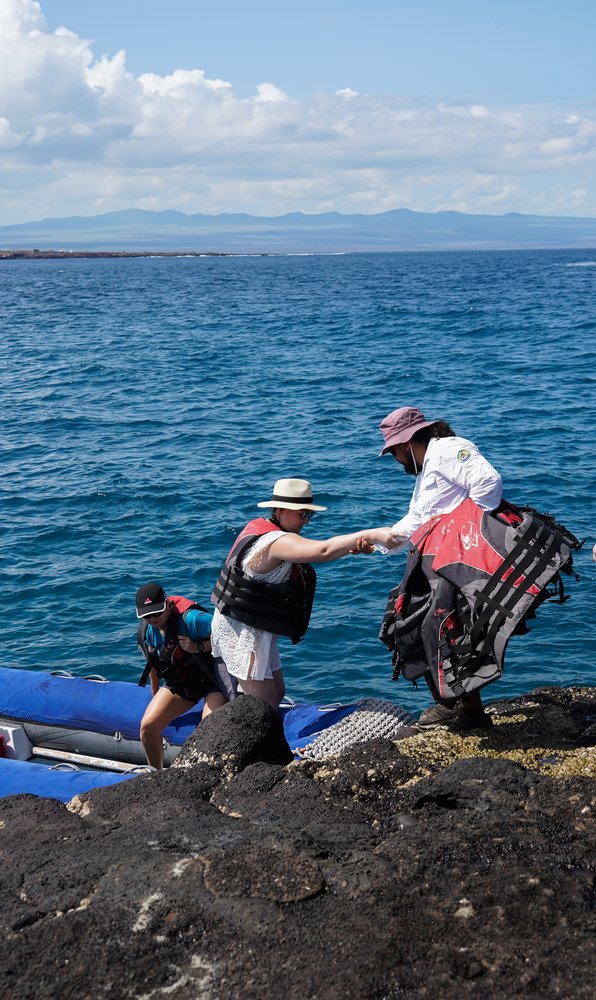
Collaborating for Sustainability
In 2020, the Charles Darwin Foundation Fellowship for Sustainability Research was created to invite high-level academics of various disciplines throughout the world to develop innovative research projects for addressing sustainability issues in the Galapagos Islands. This initiative attracted three talented professionals from diverse fields: land-bird conservation in agricultural landscapes, marine conservation and productive sectors, and cultural aspects of Galapagos tourism.
One of these fellows was Dr. Carter Hunt, Associate Professor at Penn State University, whose research outlined an effort to adapt the globally recognized Drawdown solutions specifically to the Galapagos context. Carter cooperates closely with CDF's Sustainable Tourism Program as a collaborating scientist, by leading multiple initiatives focused on cultural differences that underpin sustainability challenges, e-waste production and management, and sustainable tourism practices in the Galapagos Islands.
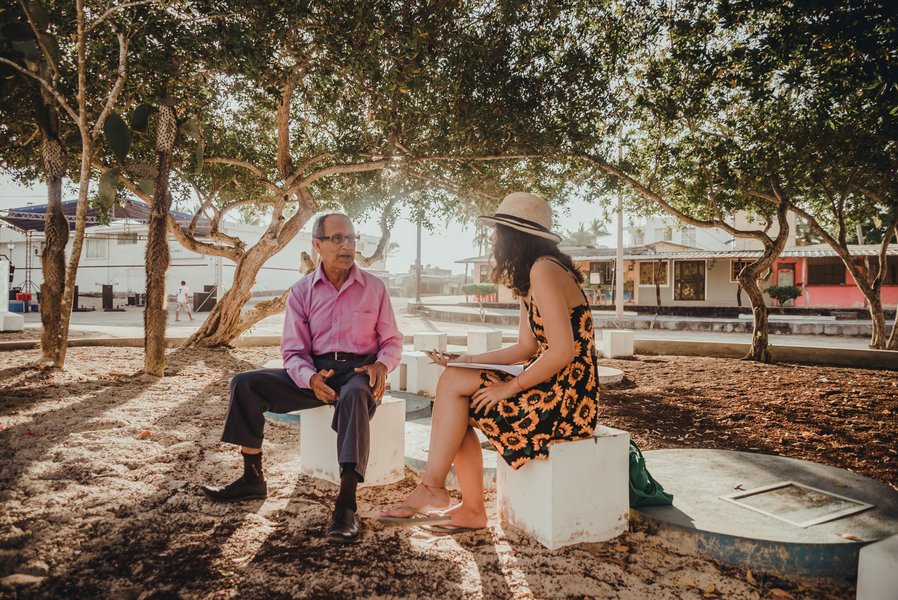
Why You Should Support Us
Tourism sustains local livelihoods and many conservation efforts in the islands, yet ironically, it also poses a major threat to the islands’ long-term sustainability. Recognizing and protecting the intrinsic value of nature is crucial for promoting a more sustainable and resilient approach to tourism in Galapagos, while integrating locally-based agriculture can help to reduce the dependency on imported goods, supporting alternate economies, food security, and conservation efforts.
By supporting our Sustainability for Conservation Program, you can help to ensure that local communities continue to benefit from tourism and agriculture in a sustainable manner, while also protecting one of our world’s most important natural treasures.
Bibliography
Muñoz-Barriga, A. y Pinos Jarrín, N. 2023. Impactos generados por el Covid-19 en los Guías turísticos de las Islas Galápagos, Ecuador. Dimensiones Turísticas. Vol. 7, e714689. https://doi.org/10.47557/KHPU468
Moya, P. y Muñoz-Barriga, A. 2022. Residentes, conservación, desarrollo y turismo en Galápagos. Revista de Geografía Norte Grande. Vol. 83. https://revistanortegrande.uc.cl/index.php/RGNG/article/view/21117
Torres, S. y Muñoz-Barriga, A. 2022. La Gestión sostenible del sector hotelero en Galápagos. Turismo y Sociedad. Vol 31:177-197. https://doi.org/10.18601/01207555.n31.10
Muñoz-Barriga, A. 2021. Apuntes sobre Galápagos y la mercantilización de la naturaleza en un contexto global. En: Dini, F., Martellozzo, F., Randelli, F y P. Romei (Ed.), Oltre la globalizzazione – Feedback, Società di Studi Geografici. Memorie geografiche NS 19, pp. 293-299. ISBN: 9788890892684
Muñoz-Barriga, A. 2020. Persistencias, desigualdades y vulnerabilidades en el paraíso, Galápagos. Revista de Geografía Espacios. Volumen 10 (20): 1-14 https://doi.org/10.25074/07197209.20.1874

Protect Galapagos, Impact the World
The impact you make on this small ecosystem of enormous biodiversity is part of a larger footprint you are leaving for the world's future. Join us on our mission to safeguard one of our planet’s most important natural treasures through science and conservation action by making a donation today. Thank you for making an impact with us.




